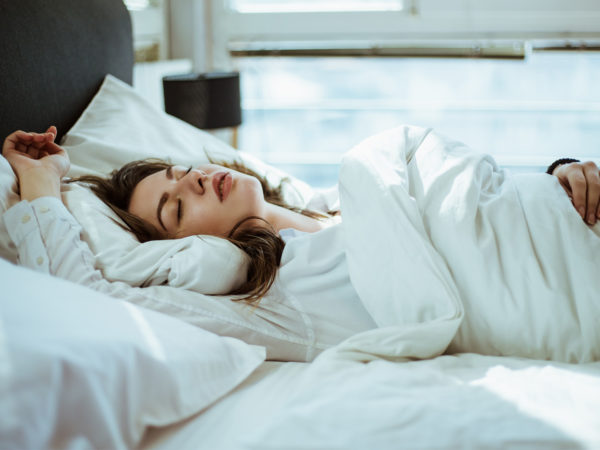How Sleep Affects Sugar Intake

Want to cut back on sugar? Try sleeping more. A United Kingdom study suggests that getting a good night’s sleep can affect what you eat. Researchers from Kings College, London recruited 42 healthy adults who typically slept between five and seven hours a night and divided them into two groups. One group received counseling about habits that limit sleep. The team followed both groups for four weeks.
During the last week of the study the participants kept food and sleep diaries and wore sleep-monitoring devices. The results: those who received counseling slept an average of 27 to 77 minutes longer. Analysis of their food diaries showed that those sleeping longer reduced their sugar intake by 10 grams daily and consumed fewer fats and carbohydrates. None of the participants in either group lost weight or lowered their cholesterol or blood glucose levels, perhaps because the study was too short to yield any such changes. The strategies that led to longer sleep included avoiding caffeine late in the day, not using electronic devices before bedtime, not going to bed full or hungry and establishing a relaxing bedtime routine. The researchers plan a longer, larger study to test the dietary effects of increased sleep.
My take? Some research suggests that the average American consumes an astonishing 22 teaspoons of sugar a day, mostly from sugar-sweetened sodas and baked goods as well as candy, ready-to-eat cereals and breads. Added sugar has been linked to the development of high blood pressure, increased triglycerides, low HDL (“good”) cholesterol, and fatty liver problems. It also appears to increase the risk of fatal heart attacks. Sleep deprivation, by itself, can have a negative impact on health, and we know that the less people sleep, the more likely they are to become obese, which increases their risk of a long list of diseases. We’ll have to see what further research reveals about the effects of sleep on diet. In the meantime, establishing a nighttime routine to help boost sleeping time is well worth the effort.
Source:
Haya K. Al Khatib et al “Sleep extension is a feasible lifestyle intervention in free-living adults who are habitually short sleepers: a potential strategy for decreasing intake of free sugars? A randomized controlled pilot study.” The American Journal of Clinical Nutrition, January 1, 2018, doi.org/10.1093/ajcn.nqx030
Also in this week’s bulletin:











